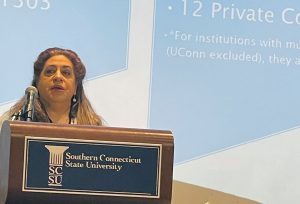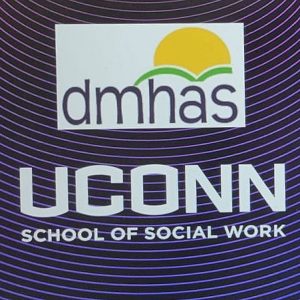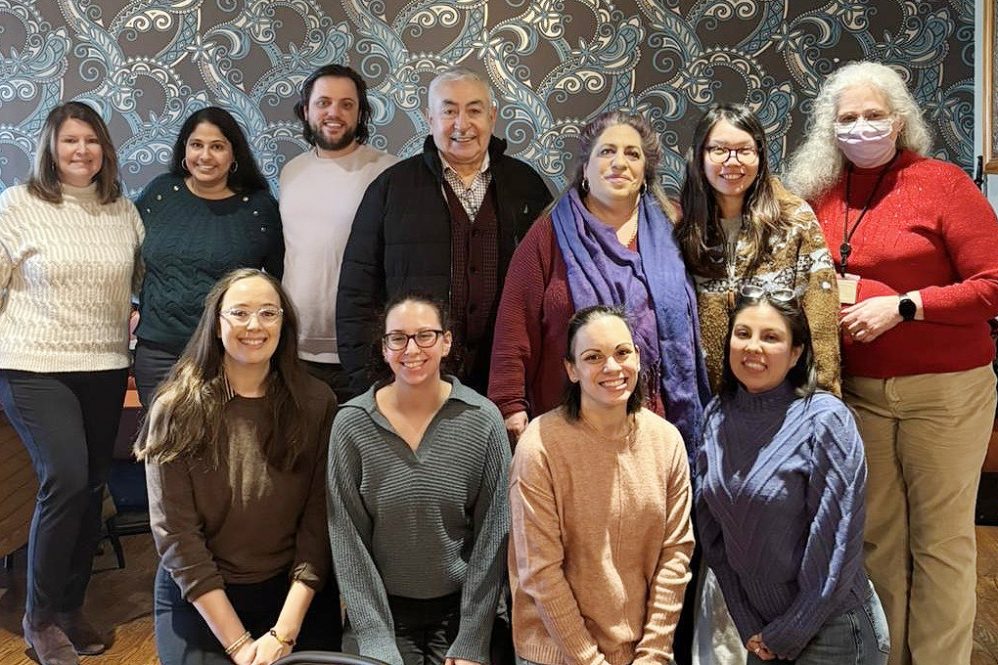More than 30 years ago, the University of Connecticut (UConn) and the State of Connecticut Department of Mental Health and Addiction Services (DMHAS) created the DMHAS Research Division (RD), a unique state agency-academic partnership with the UConn School of Social Work (SSW) whereby the Division serves as a DMHAS unit.
Currently, 24 research faculty members, professional staff, and students report to Research Director Eleni Rodis. The RD provides support to DMHAS through its capacity to design and conduct program evaluations, cost effectiveness studies, large administrative database merges and analyses, fidelity monitoring, implementation research, randomized clinical trials, training in various clinical and organizational interventions, and through investigative work on many issues of policy relevance in the mental health and addictions fields. In the time since it was formed, the Research Division has become a nationally recognized leader among state mental health and substance abuse agencies in services and applied research.

The Research Division’s $7.5M active award portfolio, representing 10 awards, is supported entirely by grant and contract funds from DMHAS and the Substance Abuse and Mental Health Services Administration (SAMHSA). Sources have also included a range of state and federal agencies including the National Institute on Drug Abuse, the State Departments of Correction, Children and Families, Education, and Public Health, and the Office of Early Childhood. In addition, the RD has collaborated with local and national organizations and institutes to support the DMHAS RD mission. The opioid epidemic and its subsequent health disparities, supportive housing, transition-age youth and young adults with behavioral health concerns, crisis stabilization, peer-led respite care, and implementation of evidence-based practices together form some of the RD’s recent and active research topics.
Two Research Division evaluation projects currently underway team up with local community partners to assess pilot programs that provide services to reduce emergency room visits, hospitalizations, and arrests for people in behavioral health crisis. The first $175K award is a voluntary, short-term ER alternative peer respite site, run and staffed by those with lived experience at The Gloria House at New Life II and provides community-based, non-clinical support. The second is a $482K award and joins together Continuum of Care and the Connecticut Mental Health Center on a program named REST (Rapid Evaluation, Stabilization, and Treatment). It is staffed full-time with a multi-disciplinary team of recovery support specialists, also with lived experience, to fully respond to client needs and reduce the recurrence of substance use and mental health crises. The RD will synthesize data from multiple sources and create concise evaluations both of which will inform DMHAS and the State Legislature on whether to fund further respite programs in Connecticut.

Another active RD initiative that seeks to fill a gap in crisis response partners with the United Way of Connecticut on a $1M grant and evaluates the state’s participation in the national 988 Suicide & Crisis Lifeline, which puts callers (including calls, texts and on-line chats) in touch with crisis specialists and can lead to referrals to other local resources. While there has been continual growth since its inception, there is evidence that awareness of the crisis line is not universal. The evaluation is twofold: it includes tracking and reporting metrics on required response standards and will examine trends over time, and ultimately, it’ll guide the United Way on which segments of Connecticut communities are less aware of the service so that outreach can be targeted appropriately. The 988 outcomes include suicide prevention, linkage to resources, and reduced ER visits and hospitalizations.
DMHAS initiatives decrease human risk, increase access to health resources, and promote peer-led wellness. The Research Division continues to support those initiatives’ efficacy through thorough, independent analysis and evaluation while informing decision-makers about the effectiveness of treatment and the impact of policies on those with behavioral health disorders.



